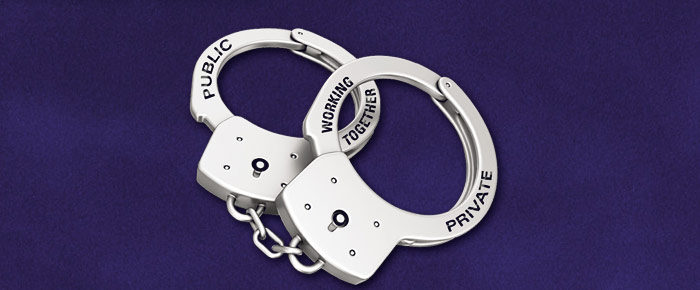
Throughout history law enforcement has struggled with bringing down organized crime. Alphonse "Al" Gabriel Capone and his notorious gang crippled an entire city with fear and terror in the 1920s during prohibition. Outlaw motorcycle clubs have thrived since the 1960s through illegal proceeds derived from prostitution, drug dealing and weapons sales. Now with technology, organized crime flourishes with computer crimes, mortgage fraud, identity theft and the list goes on and on.
Federal law enforcement utilizes its long arm of the law—no jurisdictional boundaries—to investigate organized crime. Tough federal laws aid in those investigations. Grand jury subpoenas and federal search warrants are issued everyday throughout our nation and abroad. Administrative subpoenas are readily available to agents during investigations.
One fact has stood out through history, criminals and organized crime cannot operate without money. Most crimes are committed to steal money and reinvested to commit more crime. Proceeds of crime are then used for legal goods, services and property both tangible and real. Organized crime now flourishes even more through money laundering, which occurs worldwide.
The Fairfax County Police Department (FCPD), the second largest law enforcement agency in the Commonwealth of Virginia, recognized that criminals and criminal enterprises were being successfully prosecuted through the courts. The problem was that, once jail terms ended, these criminals and criminal enterprises went right back into their illegal businesses.
In October 2004, the Organized Crime and Narcotics Division formed the Special Investigations/Narcotics, Money Laundering Unit to combat criminals and criminal enterprises. This squad consists of four detectives and one sergeant/supervisor. The mission of the Unit is to attack criminals and criminal enterprises by identifying and seizing assets.
Once the Money Laundering Unit was formed it needed the tools to complete its mission. The Fairfax County Police Department was one of the first local law enforcement agencies to participate in the Financial Crimes Enforcement Network's Gateway program. This program allows local law enforcement to search Suspicious Activities Reports, Cash Transaction Reports and Casino Cash Transaction Reports.
In 2005, the Money Laundering Unit attended the MoneyLaundering.com Conference in Hollywood, Florida. Once the Unit returned, a brochure from the Association of Certified Anti-Money Laundering Specialists (ACAMS) was found within the supplied conference materials.
The Unit began investigating criminals involved in money laundering. Arrest warrants were sought for money laundering and its parent felony. Magistrates at that time were unfamiliar with the relatively new money laundering statute that was enacted in 1999, and at times were reluctant to issue the arrest warrants for lack of knowledge of the criminal code.
To overcome this issue, the Money Laundering Unit attended the ACAMS conference in 2006. The Unit studied as a group to prepare for the Certified Anti-Money Laundering Specialist (CAMS) exam and successfully passed the test. Each member of the Unit uses the CAMS certification in his or her qualifications in search warrant affidavits. Since that time no member has ever been challenged when either seeking an arrest or search warrant.
Another resource utilized by the Money Laundering Unit is a group of bank regulators, investigators, and managers that form the Security Association of Financial Institutions (SAFI). The Money Laundering Unit, as well as other local and federal agencies, can send a SAFI Alert best described as a mini 314A request concerning targets in their investigations. The SAFI alert is sent out to all financial institutions who are members of SAFI. The request only asks that if the requested target(s) of an investigation utilizes a financial institution that is a member of SAFI, the institution notify the requesting agency. SAFI has been a large asset to the Money Laundering Unit.
Local law enforcement agencies are restricted to investigate crimes that occur within their jurisdictional boundaries; however, jurisdictional boundaries do not apply to the bad guys. One way to combat crimes that cross jurisdictional boundaries is to partner with federal agencies. The partnerships between local law enforcement and federal agencies have proven to be successful through prosecution of numerous criminals and organized crime figures.
The majority of crimes that local jurisdictions investigate do not meet federal statutes. This is where FCPD has become creative over the years. Instead of reinventing the wheel, the Money Laundering Unit takes advantage of the strong brother/sisterhood that makes up law enforcement.
As an example, in 2005 the Money Laundering unit investigated a suspect involved in an illegal gambling (sports betting) operation. The suspect resided in the District of Columbia, but he met his players throughout the tri-state area of Maryland, Virginia, and Washington, D.C, to collect and pay out monies from the illegal sports bets. The majority of the players resided in Fairfax County.
The Money Laundering Unit arrested the suspect in Fairfax County. The United States Park Police executed a search warrant for the FCPD on the suspect's residence in Washington, D.C. The search warrant revealed bank accounts and safe deposit boxes in Florida, Ohio and Texas. The Money Laundering Unit contacted local law enforcement agencies where the bank branches and safe deposit boxes were located. On the basis of the FCPD probable cause for the investigation, search warrants were written and obtained by the local police agencies in those jurisdictions. More than $500,000.00 was seized in this investigation.
Once the suspect was successfully prosecuted and his assets were seized and forfeited, the FCPD shared those forfeited assets with the local police agencies in Washington, D.C., Florida, Ohio and Texas. This is just one example of how the Money Laundering Unit has successfully partnered with local police agencies throughout the United States that have led to the seizure and forfeiture of millions of dollars. The goal of the Money Laundering Unit is to ensure when criminals and criminal organizations are taken down they do not have the means or funds to restart their crimes.
The Fairfax County Police Department's Special Investigations/Narcotics Money Laundering Unit has become very proficient in its mission since its inception in 2004. The Unit has provided training to police jurisdictions throughout the Commonwealth of Virginia because of their success in operations and investigations. The Unit's success though is attributed to the partnerships formed with local police jurisdictions within and outside the Commonwealth. It is also attributed to the members of SAFI and to the partnerships formed with the members and attendees they have met and contacted at the annual ACAMS conferences they have attended since 2006.










